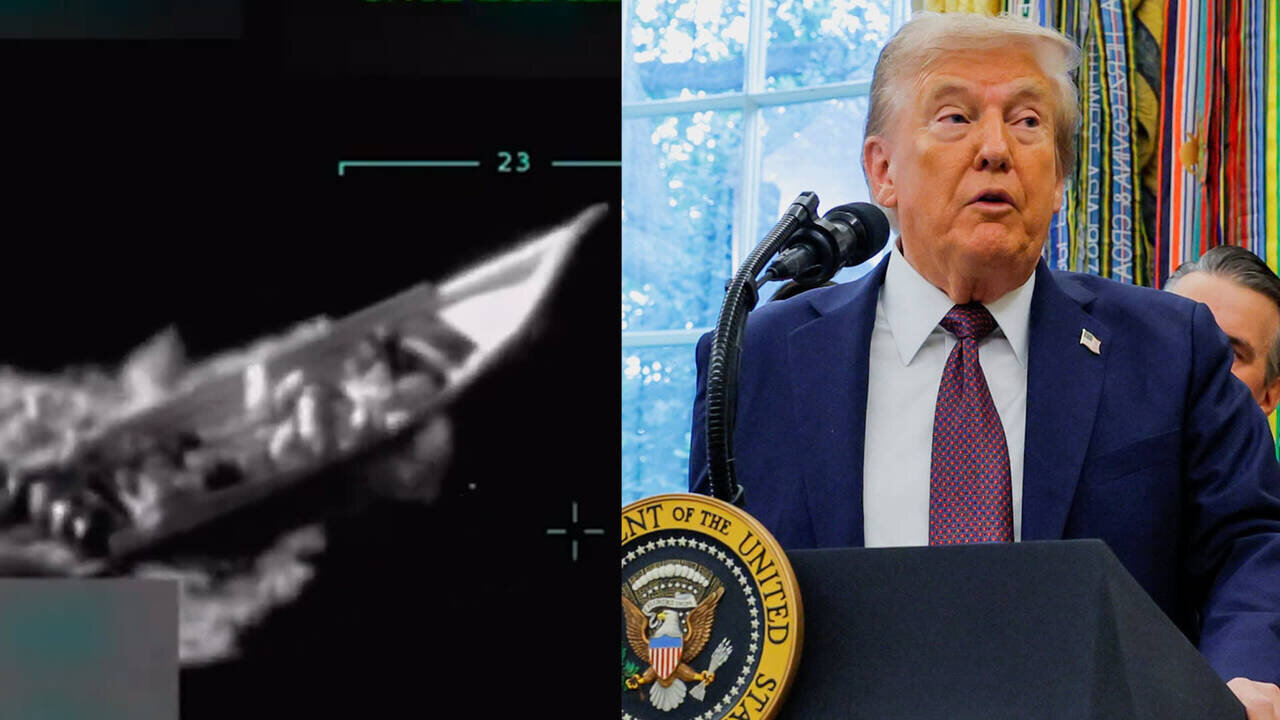How Trump’s ‘drug war’ masks his drive for war against Venezuela

TEHRAN – In the choppy seas of international intrigue, truth can sink faster than a targeted vessel. When the U.S. military destroyed a 12-meter “flipper” speedboat off Venezuela, killing all 11 aboard, President Trump hailed it as a strike against “a Venezuelan criminal organization tied to Maduro.” Scratch the surface, though, and it looks less like justice than premeditated aggression.
Reporting from El Pitazo undermines the U.S. narrative: the boat, with four 200-hp engines, left San Juan de Unare for Trinidad and Tobago — a corridor for fishermen and migrants.
Eight of the dead were locals; three were from nearby towns, including the owner’s son. The owner tracked the vessel by GPS and was unsure whether the cargo was drugs. Two other boats reportedly carried narcotics along the same route that night without U.S. interference.
Trump’s claim that the boat was bound for the U.S. strains credibility: the distance and course make it implausible. To frame it otherwise bends fact into pretext — a missile aimed not only at a vessel but at truth.
Locals from San Juan de Unare now reel from the strike: whatever the boat carried, the men were executed without trial, evidence, or jurisdiction. “Innocent until proven guilty” is a bedrock of law; here, America acted as judge, jury, and executioner in international waters.
This was no routine “drug interdiction” but an extrajudicial killing — and, more ominously, an opening salvo. Naval patrols have morphed into lethal strikes.
Thousands of U.S. sailors and Marines are deployed across the Caribbean. Advanced F-35 jets, each sortie costly, reportedly operate from Puerto Rico. The administration’s rhetoric leaves little doubt: “We’ll take on drug cartels wherever they are,” Secretary Marco Rubio said — leaving the door open to strikes inside Venezuela.
The playbook is recycled. In 2019, Washington backed Juan Guaidó as “interim president” to oust Maduro. Sanctions battered the economy; in 2020, Operation Gideon — a mercenary beach raid tied to Guaidó’s orbit — failed. Washington’s lesson was rebranding: regime change dressed as counternarcotics.
Hypocrisy is glaring. Trump campaigned on ending forever wars, yet he escalates a new front while conflicts simmer elsewhere. At home, jobs are revised downward and debt towers, yet billions fund military posturing. Every missile, sortie, and “show of force” in the Caribbean carries a bill taxpayers foot while domestic needs are deferred.
The endgame is not cocaine or fentanyl. UN data show Venezuela plays only a marginal role in U.S.-bound narcotics. What it does possess are the world’s largest proven oil reserves and ties to a multipolar order anchored by Russia, China, and Iran. That is what makes Caracas a target. Cartels are the smokescreen; the real prize is dominance — Monroe Doctrine redux.
A leaked draft of the Pentagon’s latest National Defense Strategy — reported by Politico — shows a shift: moving U.S. priorities from countering China toward “protecting the homeland and Western Hemisphere.” It envisions pulling forces from Europe and West Asia while surging warships, F-35s, and National Guard units into the Caribbean and the southern border.
This reorientation is already visible in maritime strikes and expanded militarization. By embedding Venezuela in this focus, the leak signals more than a bureaucratic reshuffle — it points to a military posture primed for escalation. Under the banner of counternarcotics, Washington is laying the groundwork for confrontation, making war against Venezuela not a distant possibility but an increasingly likely scenario.
Maduro has said that if Venezuela is attacked in any way, the country will move to “a stage of armed struggle.” Such a stance signals that Caracas is prepared to meet force with force. Venezuela would defend its sovereignty with over 100,000 troops, some 220,000 militia, Su-30MK2 jets, and S-300VM systems — making an invasion no cakewalk.
Oil shocks could ripple through markets. Any escalation threatens Venezuelan lives and U.S. interests, all based on a narrative already cracking under scrutiny.
The corporate-state nexus, fused with the military-industrial complex, sells “democracy” as market access and sustains hemispheric hypocrisy. Americans pay in blood and treasure; Venezuelans in sovereignty, lives, and the plunder of oil-rich resources.
He who lives by the sword dies by the sword. It is time Washington sheathed its blade, choosing dialogue over domination — or risk a fall from which it may never recover.
Leave a Comment